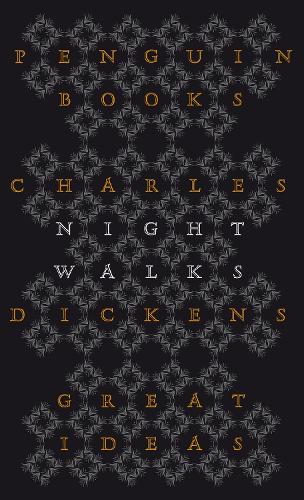
Night Walks
(Paperback)
Publishing Details
Night Walks
By (Author) Charles Dickens
Penguin Books Ltd
Penguin Classics
15th September 2010
26th August 2010
United Kingdom
Classifications
General
Non Fiction
824.8
Physical Properties
Paperback
128
Width 112mm, Height 181mm, Spine 9mm
82g
Description
Charles Dickens describes in Night Walks his time as an insomniac, when he decided to cure himself by walking through London in the small hours, and discovered homelessness, drunkenness and vice on the streets. This collection of essays shows Dickens as one of the greatest visionaries of the city in all its variety and cruelty. GREAT IDEAS. Throughout history, some books have changed the world. They have transformed the way we see ourselves - and each other. They have inspired debate, dissent, war and revolution. They have enlightened, outraged, provoked and comforted. They have enriched lives - and destroyed them. Now Penguin brings you the works of the great thinkers, pioneers, radicals and visionaries whose ideas shook civilization and helped make us who we are.
Author Bio
Charles Dickens was born in Hampshire on February 7, 1812. His father was a clerk in the navy pay office, who was well paid but often ended up in financial troubles. When Dickens was twelve years old he was send to work in a shoe polish factory because his family had be taken to the debtors' prison.Fagin is named after a boy Dickens disliked at the factory. His career as a writer of fiction started in 1833 when his short stories and essays began to appear in periodicals. The Pickwick Papers, his first commercial success, was published in 1836. In the same year he married the daughter of his friend George Hogarth, Catherine Hogarth. The serialisation of Oliver Twist began in 1837 while The Pickwick Papers was still running. Many other novels followed and The Old Curiosity Shop brought Dickens international fame and he became a celebrity America as well as Britain. He separated from his wife in 1858. Charles Dickens died on 9 June 1870, leaving his last novel, The Mystery of Edwin Drood, unfinished. He is buried in Westminster Abbey.
